Twelfth ALBA Presidential Summit Takes Place in Ecuador
The leaders of the Alianza Bolivariana para los Pueblos de Nuestra América (Bolivarian Alliance for the Americas—ALBA) are meeting today in Guayaquil, Ecuador, to discuss ways to further integrate the regional bloc and widen the scope of its work on social and economic issues. This is the first ALBA summit since the March 5 … Read more
Protests Mark Start of Humala’s Third Year in Office
In the midst of a deepening political crisis, Peruvian President Ollanta Humala gave his second Independence Day speech on Sunday. But for the first time since the dictatorship of Alberto Fujimori, widespread protests and mobilizations against the government are gaining national momentum. On Saturday, thousands of citizens gathered in the historical center of Lima. Protest … Read more
Monday Memo: Peru Protests – Bachelet and Matthei – Colombia Peace Talks – Cholera in Haiti – Mexican Vice-Admiral Killed
Likely top stories this week: demonstrators protest in Peru; a Chilean lawyer investigates the death of Michelle Bachelet’s father; FARC–Colombian government peace talks resume; a new report faults the UN for Haiti’s cholera outbreak; and assailants kill a Mexican vice-admiral. Protesters and Police Clash in Peru: Thousands of demonstrators clashed with hundreds of riot police … Read more
Humala Swears in Three New Women Cabinet Ministers
Peruvian President Ollanta Humala swore in three new female Cabinet ministers on Wednesday, giving the Cabinet an equal number of male and female ministers for the first time in Peru’s history. Peru’s Cabinet now comprises nine female ministers out of a total of 18. The three new ministers include Mónica Rubio, a former social protection … Read more
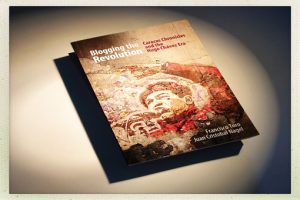
Blogging the Revolution: Caracas Chronicles and the Hugo Chávez Era by Francisco Toro and Juan Cristobal Nagel
Venezuela has been on a wild ride since Hugo Chávez was elected president in 1998. Now that the Comandante—as he liked to be called—has left us, things could get loonier a lot faster. That’s one reason why Caracas Chronicles, an English-language blog that has provided a running narration since 2002 of the Chávez era, will … Read more

World Games, Cali
In July 2013, athletes from all over the world will gather to compete for gold medals and a chance to make their country proud. This isn’t the Olympics, but the World Games—a quadrennial competition that highlights unconventional sports such as artistic roller skating, canoe polo, sumo wrestling, tug of war, billiards, and parachuting. This year’s … Read more
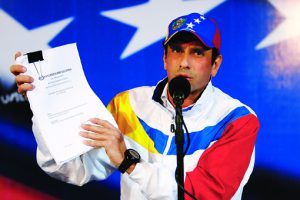
The Limits of Legacy: The Post-Chávez Challenge and Electoral Legitimacy
In April 14, Venezuelans turned out en masse for a special presidential election. More than 79 percent of the electorate voted to fill the 2013–2019 term left vacant by Hugo Chávez’ March 5 death from cancer. The photo-finish surprised and captivated the country, with interim President Nicolás Maduro defeating opposition Governor Henrique Capriles by a … Read more
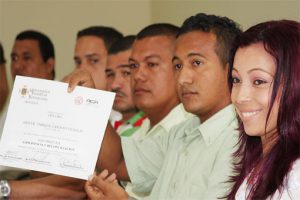
30,000 and Counting: The Long and Winding Road of Peace-Building in Colombia
After more than half a century of conflict, efforts to disarm, demobilize and reintegrate Colombia’s warring groups are just beginning to take hold. While a few small left-wing guerrilla groups were demobilized in the 1990s, successful reintegration of thousands of ex-combatants—most of them right-wing paramilitaries—into peaceful society has remained elusive. But that seems to be … Read more
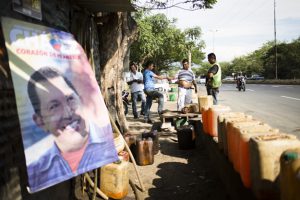
Dispatches: Pimpineros
José, a tough-looking, dark-skinned man in his 40s, met me at a small restaurant in a crowded neighborhood in Cúcuta, capital of Colombia’s Norte de Santander department, and a traditionally “hot” place for contraband and mafia violence. A leader of Sintragasolina, the gas workers’ union, José agreed to see me only if we met in … Read more
Santos Accuses FARC of Violating Peace Negotiations
Colombian President Juan Manuel Santos denounced the Fuerzas Armadas Revolucionarias de Colombia (Revolutionary Armed Forces of Colombia—FARC) on Tuesday for what he described as a “flagrant violation” of the group’s commitment to end kidnappings prior to its peace negotiations with the Colombian government in Havana. Santos’ comments, delivered at the opening of Colombiamoda (Colombian Fashion … Read more
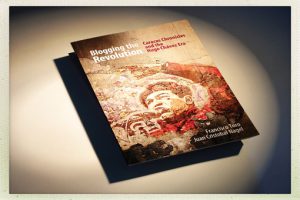
Fresh Look Reviews
Fresh, unique perspectives on recent books from across the hemisphere originally published in English, Spanish and Portuguese.

Panorama
Stay up-to-date with the latest trends and events from around the hemisphere with AQ‘s Panorama. Each issue, AQ packs its bags and offers readers travel tips on a new Americas destination.
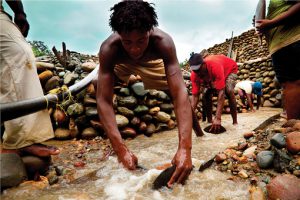
Innovators
Some of our hemisphere’s emerging leaders in politics, business, civil society, and the arts.
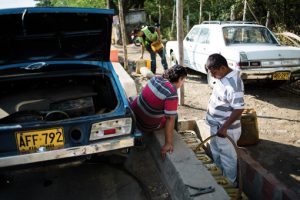
Dispatches from the Field: Cúcuta, Colombia
Colombia’s pimpineros struggle to survive in the shadowy, violent world of border gas smuggling.
Venezuela y Snowden: Las contradicciones domésticas
Durante años, ejercer periodismo o entrar en la arena política venezolana implicaba aceptar el hecho de que, al tocar las cuerdas erradas, conversaciones telefónicas o trechos de la rutina diaria podían ser expuestos en televisión nacional—en loop o cámara lenta, estudiados con marcas y detalles como una jugada de fútbol—para delirio de adversarios. Fue así … Read more


